All products featured are independently chosen by us. However, SoundGuys may receive a commission on orders placed through its retail links. See our ethics statement.
Best Wireless Headphones (2024): Tested By Experts
October 17, 2024
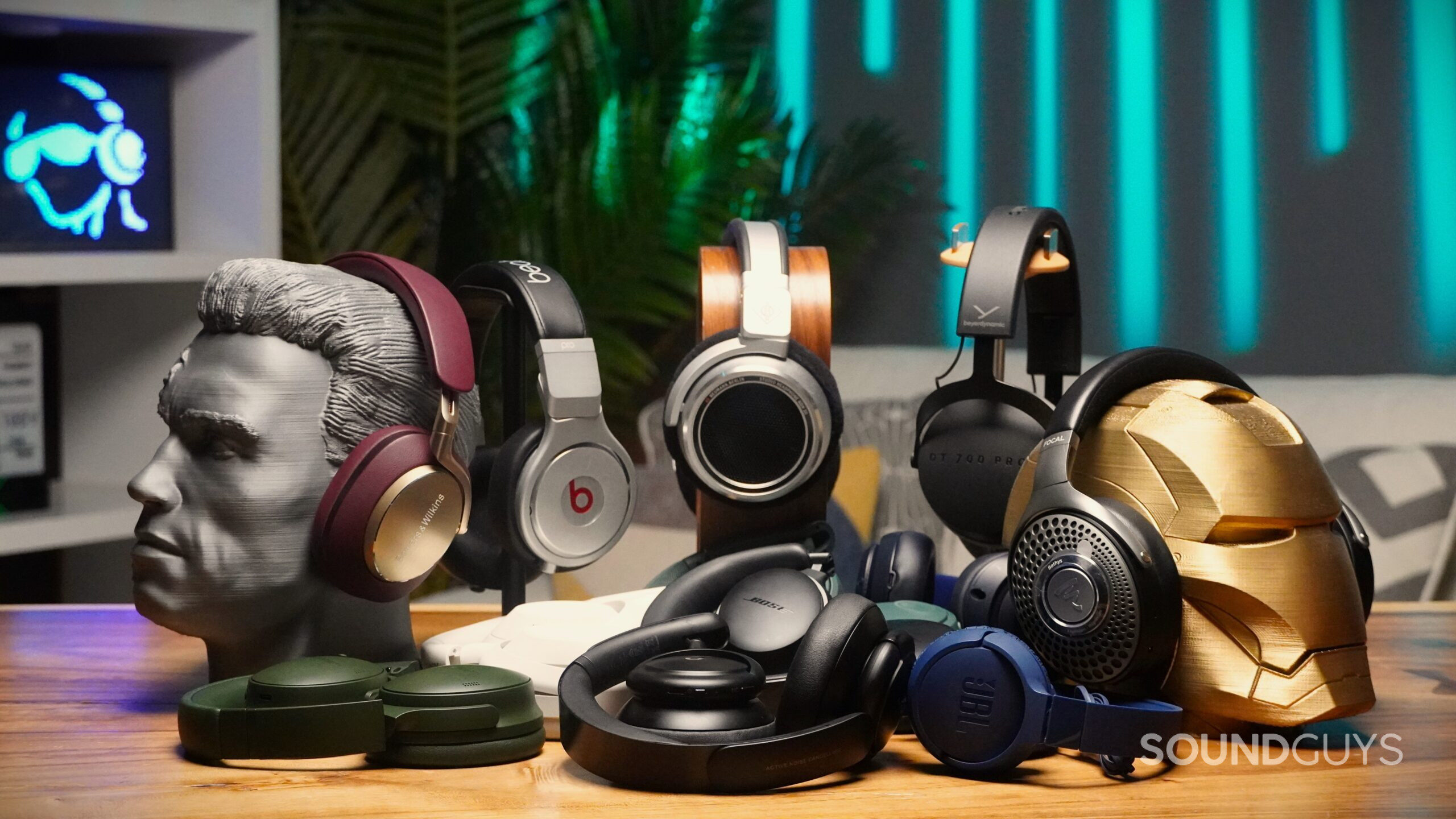
Featured in this article
Next time you’re on a flight or walking through a busy city, take a look around. You’ll likely spot dozens of people wearing wireless headphones, tuned into their own world of music, podcasts, or calls. It’s no wonder they’ve become so ubiquitous — today’s wireless headphones offer more than just freedom from tangled cords. With features like noise cancelation to mute airplane engines and spatial audio for an immersive experience, they’ve changed how we enjoy sound on the go. Whether you’re a frequent flyer, a gym enthusiast, or just someone who loves great audio, finding the right pair can make all the difference. Let’s explore some of the best wireless headphones that can elevate your listening game.
Updated October 2024. We’ve updated the formatting of this article for brevity.
Best wireless headphones for most people: Sony WH-1000XM5
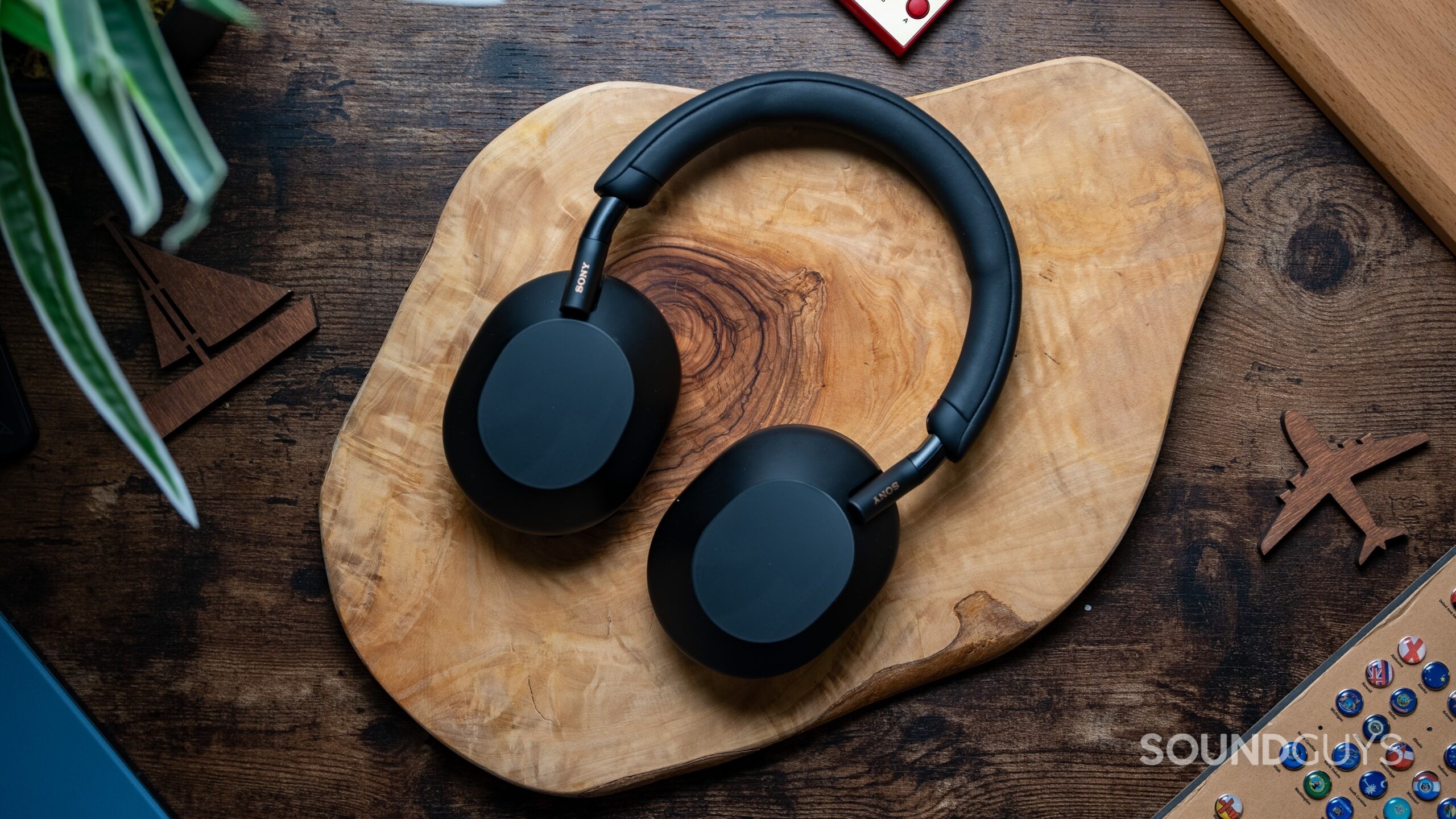
Two years after its release, the Sony WH-1000XM5 (8.1, SoundGuys Editor’s Choice Award) are still one of the best wireless headphones you can buy. Our testing shows the ANC performance is particularly impressive, effectively reducing low-frequency sounds like engine noise and street bustle to about one-eighth of their original perceived loudness. I found the sound quality, while not perfect out of the box, is highly customizable. The default tuning emphasizes bass and treble, which may overshadow midrange frequencies. However, after I made a few tweaks in the companion app’s equalizer, I greatly enjoyed the listening experience. The WH-1000XM5’s comfort and usability also stand out. With soft leatherette ear cups and a lightweight design, I found they’re comfortable for extended wear. Intuitive touch controls and smart features like speak-to-chat and quick attention mode add to the overall user experience, making these headphones a versatile companion for commuters and frequent travelers.
Best noise canceling headphones: Bose QuietComfort Ultra
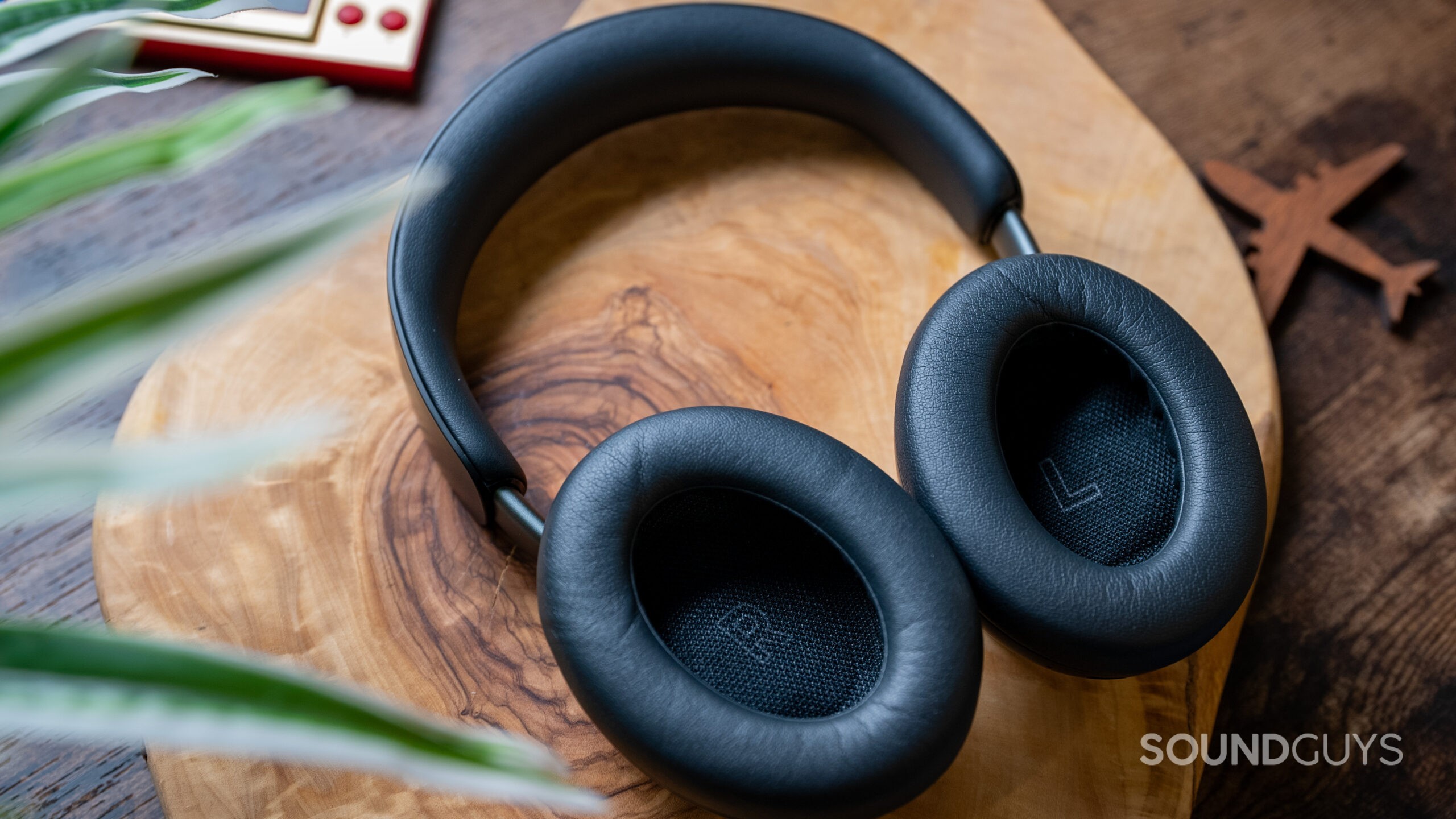
The Bose QuietComfort Ultra Headphones (8.2, Editor’s Choice Award) deliver excellent active noise cancelation and impressive sound quality in a comfortable, lightweight package. The ANC performance is top-notch, reducing low-frequency noises like bus engines and airplane whines by about 87% according to our testing. I also found the passthrough mode, called Aware Mode, is quite good, faithfully representing surroundings without aggressive band-limiting. Sound quality is a strong point, with a well-balanced profile that can be further customized through the Bose Music app’s EQ settings. The headphones use CustomTune technology to adjust the sound to your individual ear anatomy, resulting in a consistently good listening experience across users.
While I found some minor channel balance issues, most listeners will find the audio quality more than satisfactory. The headphones support advanced codecs like aptX Lossless and Snapdragon Sound, future-proofing them for upcoming developments in wireless audio. However, these features are currently limited to Android users with specific hardware. The lack of water resistance and USB-C audio passthrough are notable downsides. Still, overall, the Bose QuietComfort Ultra Headphones offer a compelling package for those seeking high-quality ANC headphones.
Best wireless headphones for gaming: SteelSeries Arctis Nova 5X
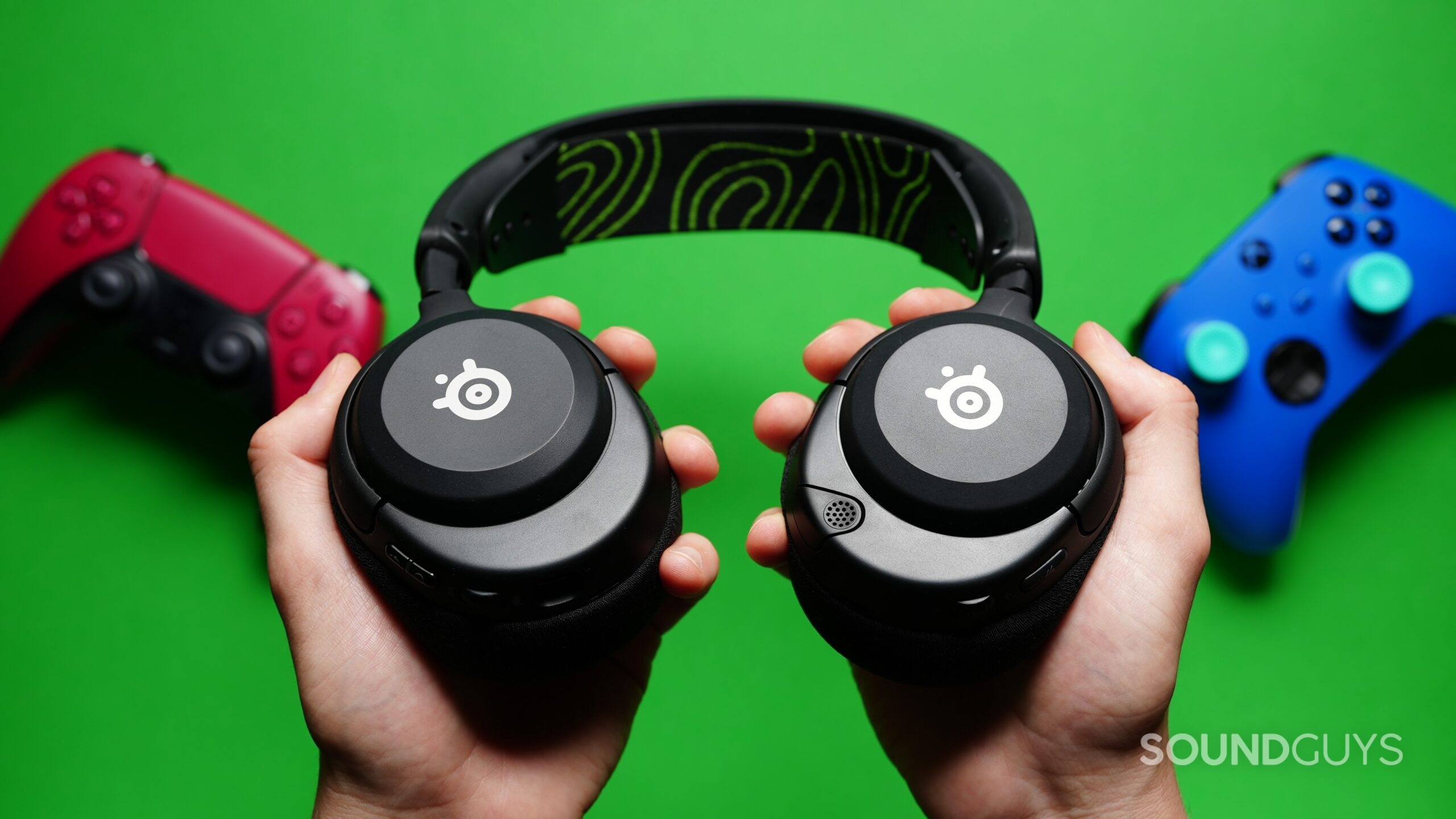
The SteelSeries Arctis Nova 5X (7.4, SoundGuys Recommends) stands out as a high-value, multi-purpose gaming headset. Its unique selling point is the wide compatibility across all major gaming platforms, thanks to a clever USB dongle design. The headset excels in comfort, featuring breathable fabric ear pads and a suspension band that distributes weight evenly. Audio quality is customizable through the companion app, which offers over 100 game-specific EQ presets. While it lacks ANC, our testing shows the Arctis Nova 5X delivers on battery life, microphone quality, and overall versatility, making it an excellent choice for gamers who own multiple consoles or switch between devices frequently.
Best wireless headphones under $200: Sennheiser ACCENTUM Wireless
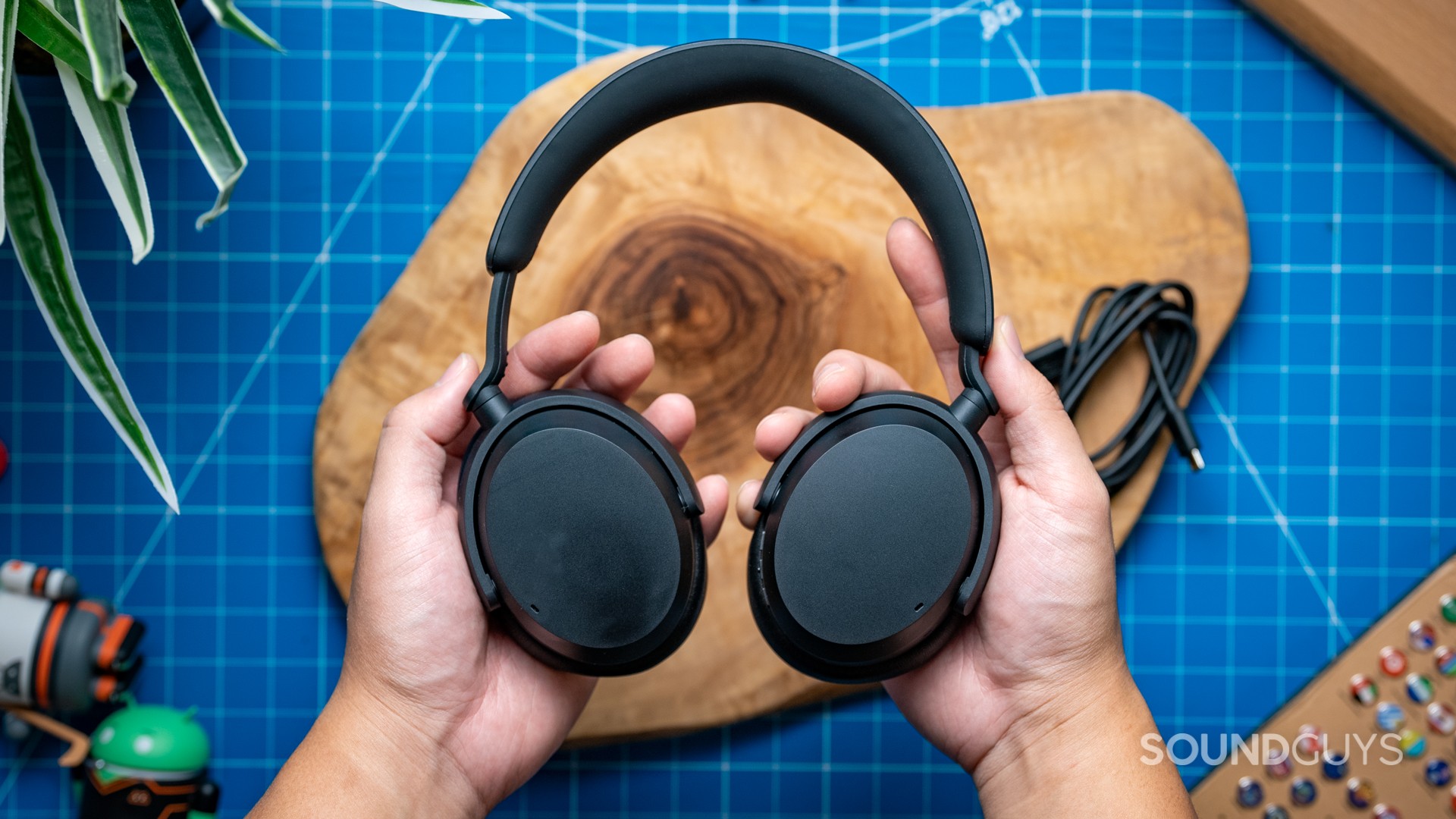
The Sennheiser ACCENTUM Wireless (7.4, SoundGuys Recommends) offers a compelling mix of features at a more affordable price point compared to top-tier ANC headphones. I found these lightweight headphones provide impressive comfort for extended listening sessions, with adequate padding that suits most users. Our testing shows that sound quality is a strong point, with a well-balanced profile that leans slightly towards enhanced sub-bass. The 5-band equalizer in the Sennheiser Smart Control app allows for fine-tuning to personal preferences. While the ANC performance is decent, reducing low-frequency noise by up to 75%, it falls short of the noise canceling capabilities of more expensive competitors.
The headphones lack a 3.5mm jack, which may disappoint some users. However, they do support USB-C audio for lossless listening. The Smart Control app offers additional features like sidetone adjustment and device management. The microphone quality for calls is adequate but struggles with noise rejection in some environments. Overall, the Sennheiser ACCENTUM Wireless represents an excellent choice for budget-conscious consumers who prioritize sound quality and comfort over cutting-edge ANC performance or advanced features.
Best wireless headphones under $100: JLab JBuds Lux ANC
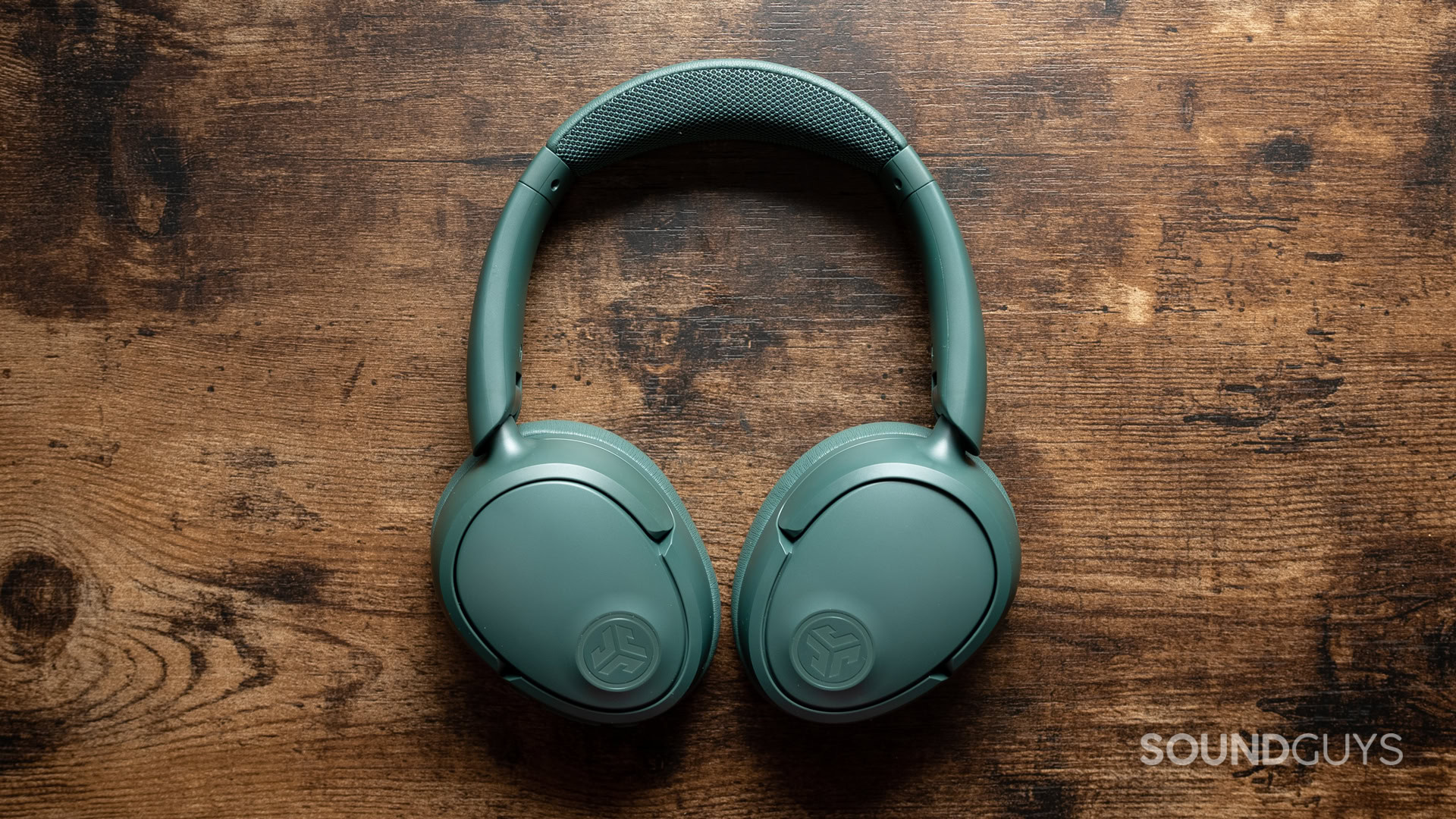
The JLab JBuds Lux ANC (8.2, SoundGuys Recommends) offer exceptional value for budget-conscious consumers seeking active noise canceling headphones. At just $79.99, I found these over-ear headphones deliver impressive performance in key areas. Sound quality is a strong point, with a consumer-friendly profile that emphasizes bass and treble. While this can lead to some fatigue during extended listening sessions, it works well for commuters dealing with environmental noise. The JLab app provides a 10-band EQ for sound customization.
The ANC performance is decent for the price, reducing low-frequency noise by 50-75% below 700Hz. The headphones excel at isolating high-frequency sounds, blocking up to 46dB in higher ranges. Comfort is also noteworthy, with well-padded ear cups and a breathable headband that accommodates glasses wearers.
Battery life is impressive, with a quick charge feature providing 4 hours of playback from a 10-minute charge. While they lack advanced features like spatial audio or high-end codecs, the JLab JBuds Lux ANC focuses on fundamentals, offering USB-C audio and a foldable design for portability.
Best for iPhone: Apple AirPods Max
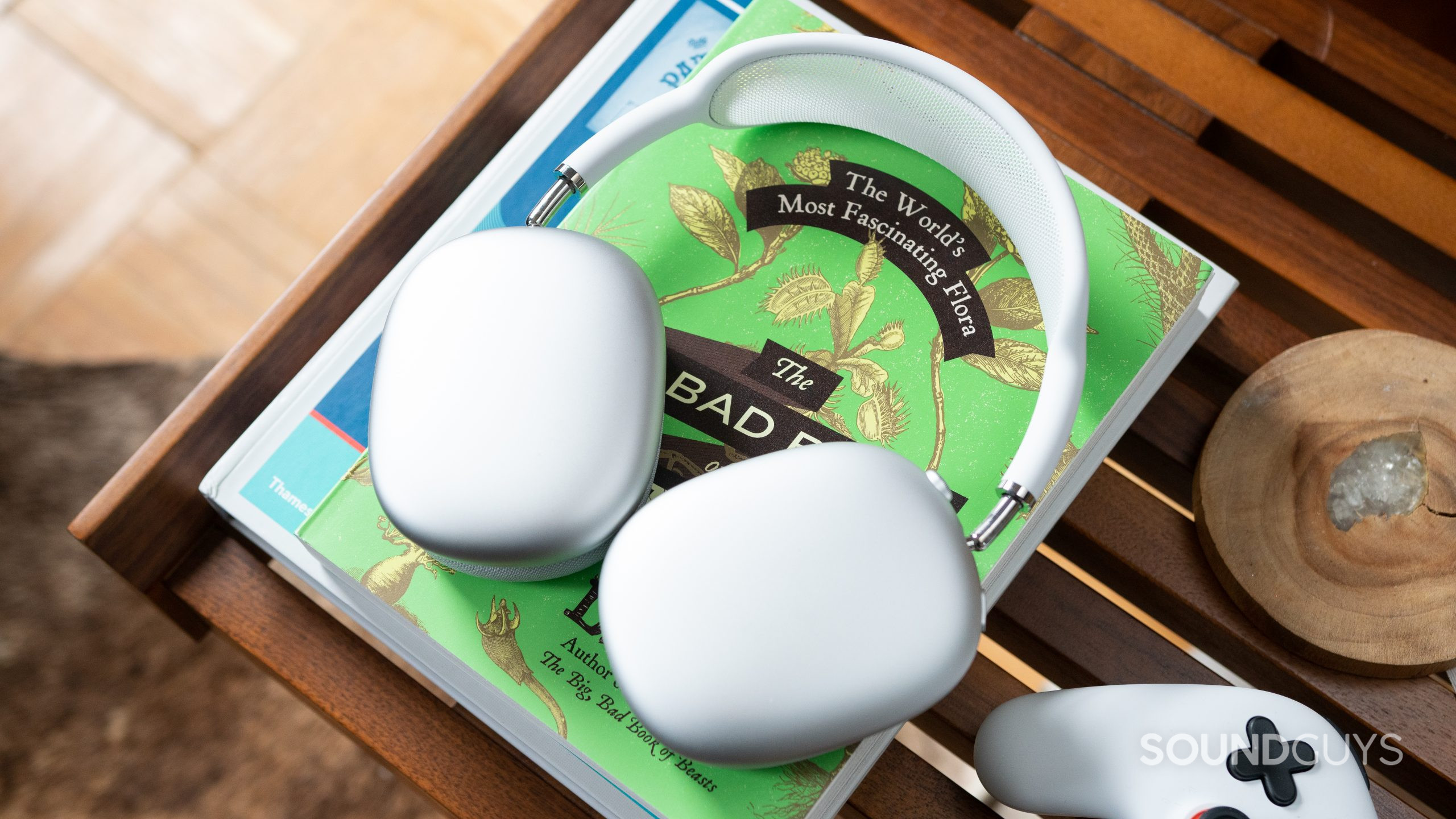
The Apple AirPods Max cost $499 at Amazon, which means plenty of us would need to take out a small loan just to afford Apple’s noise canceling headphones. Since we’re not financial advisors here, it’s a bit unwise to recommend you purchase something so pricey when other products of similar quality go for much less. However, the AirPods Max perform better than most other headphones we’ve tested for active noise canceling, and we also found these headphones sound really good. The AirPods Max may be right up your alley if money isn’t an object and you’re happy to pay a premium for absolute convenience (assuming you’re deep into the Apple ecosystem).
Apple integrated its H1 chip into each AirPods Max ear cup, so it has plenty of processing power for features like Adaptive EQ, Transparency mode, active noise canceling, hands-free Siri access, automatic device switching, and more. Depending on your Apple hardware, these features require basic operating system requirements, so that’s something to keep an eye on. Battery life is on par with the Sony WH-1000XM4 at around 20 hours, and you need a Lightning cable to charge the AirPods Max. It supports passthrough audio if you purchase a Lightning to USB-C cable, which may be useful for audiophiles.
Other wireless headphones we’ve tested
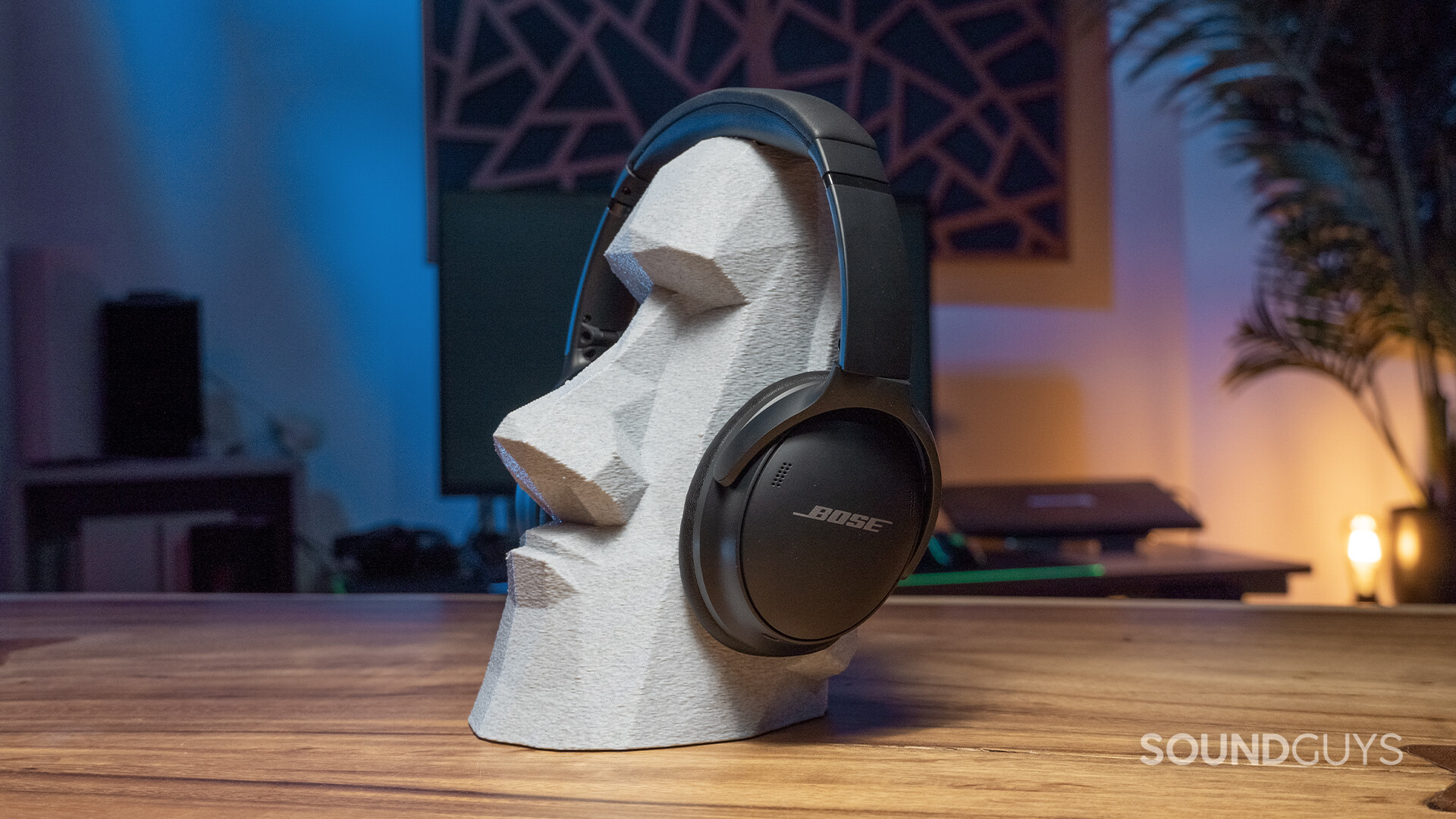
- 1MORE SonoFlow ($99.99 at Amazon): The 1MORE SonoFlow are good-sounding, feature-rich headphones that won’t break the bank. Commuters and travelers will enjoy the ANC, long battery life, and plush ear pads. Experienced listeners will enjoy decent sound and EQ options.
- Anker Soundcore Space One ($99.99 at Amazon): These headphones bring most of the same features of flagship competitors for a fraction of the price.
- Anker Soundcore Life Q30 ($79.99 at Amazon): With good sound, active noise canceling, and battery life, these are some of the best-value headphones on the market. If you have a budget of $100, don’t hesitate to buy the Anker Soundcore Life Q30.
- Anker Soundcore Space Q45 ($149 at Amazon): These headphones tick most boxes for the price. The Bluetooth or wired-equipped over-ear headphones supply good codecs, AAC, and LDAC and sound pretty good. They also have decent noise canceling.
- Audio-Technica ATH-M20xBT ($79 at Amazon): This budget-friendly set of headphones is designed to go with you to and from the studio. It sports a fairly steep volume roll-off in the sub-bass, but otherwise, it should please all but the bass heads.
- Bose QuietComfort 45 ($279 at Amazon): If you want the best active noise canceling and comfort around, look no further. This one builds upon the QC 35 II with improved ANC.
- EarFun Wave Pro ($79.99 at Amazon): If you have a limited budget, the EarFun Wave Pro are a great option. With exceptional battery life, decent ANC, and advanced connectivity, these headphones are ideal travel or commuting headphones.
- Focal Bathys ($699 at Amazon): Look, Apple started it. The prices of wireless headphones have been increasing. At least with the Focal Bathys, you’re getting a superb-sounding pair of headphones with ANC, but that doesn’t come cheaply.
- JBL Live 660NC ($149 at Amazon): Striking a reasonable balance between form, function, and cost, these noise canceling headphones do a good job of quieting noise, working as expected, and throwing in a bit of extra bass.
- Marshall Major IV ($116 at Amazon): If you’ve worn a lot of on-ear headphones, you know that they can feel uncomfortable pretty quickly. However, the Marshall Major IV is a notable exception, with memory foam ear pads and a lightweight build with a foldable design.
- Monoprice BT-600ANC ($84.99 at Amazon): If you want to keep a pretty low budget and get premium features like very good ANC, aptX HD, and solid battery life, you’ll like Monoprice’s headset. It isn’t perfect, though, as the sound quality favors bass and treble much more than most people would like.
- Sennheiser MOMENTUM 4 Wireless ($289.23 at Amazon): If you’re looking for a slightly more affordable set of ANC headphones in comparison to the Bose or Sony offerings, the Sennheiser MOMENTUM 4 Wireless is not a bad way to go. While its ANC is technically behind the other top-tier headphones, its sound quality is ahead of the pack—as is its battery life. Not bad for $350 USD.
- Sonos Ace ($449 at Amazon): These are a pair of headphones designed for people who really enjoy immserive formats like Dolby Atmos, or for consumers who have already invested in the Sonos speaker and soundbar ecosystem.
- Sony ULT Wear ($199.99 at Amazon): These are best suited for commuters who want good ANC but aren’t willing to shell out for the highest-end options. They have a heavy bass emphasis and larger ear pads which should do well for those with slightly larger heads.
- Sony WH-CH720N ($98 at Amazon): If you’re looking for a decent set of noise canceling cans but don’t want to shell out the top-tier headphones, consider the Sony WH-CH720N as a good in-between option. These balance app support, good battery life, and solid functionality.
- Sony WH-XB910N ($148 at Amazon): If you want a bass-heavy headset with very good ANC and plenty of software features, including 360 Reality Audio, this is a good pick.
- Sony WH-1000XM4 ($278 at Amazon): This is one of the best active noise canceling headphones available, even though the newer Sony WH-1000XM5 outperforms it. If you’re looking to save some cash, though, this is generally cheaper than the newer model.
What you should know when shopping for wireless headphones
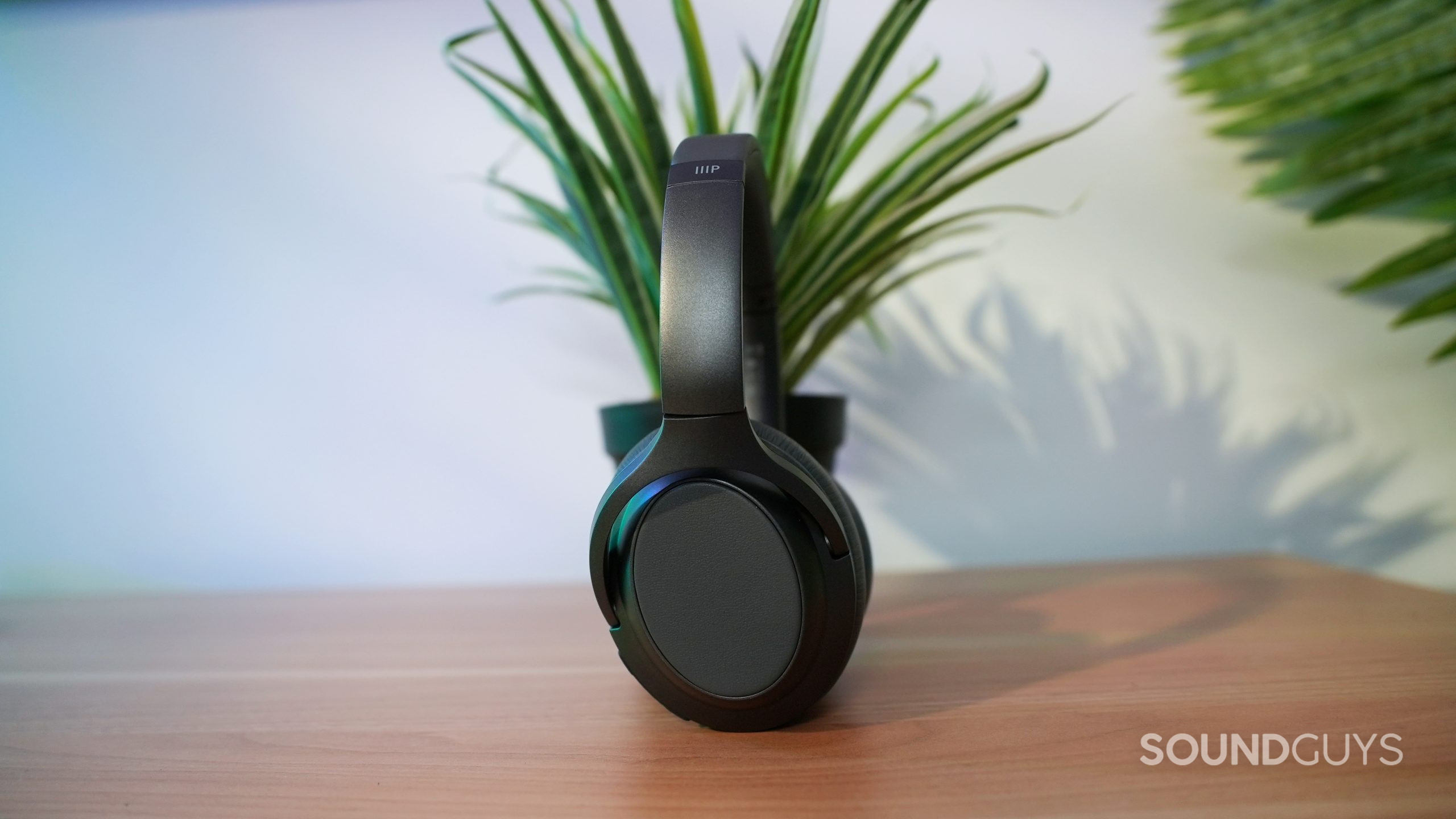
In the early days of Bluetooth, stable connectivity was an issue. Fortunately, it rarely crops up these days due to the incremental improvements over the generations of Bluetooth. Now, the main concerns you’ll encounter with wireless headphones are whether they have active noise canceling (ANC) or not, the Bluetooth codec selection (see below), and battery life. All else consists of added luxuries, which doesn’t mean you shouldn’t care, but if there’s a specific feature you want, it might not be available on all headphones.
Starting with a good-sounding set of cans is usually a must, regardless of whether you look at wired or wireless headphones. Otherwise, Bluetooth is unique in that it allows you to use companion apps on the go with your phone to adjust EQ, ANC ambient modes, touch controls, spatial audio, and more.
What is active noise canceling, and how does it work?
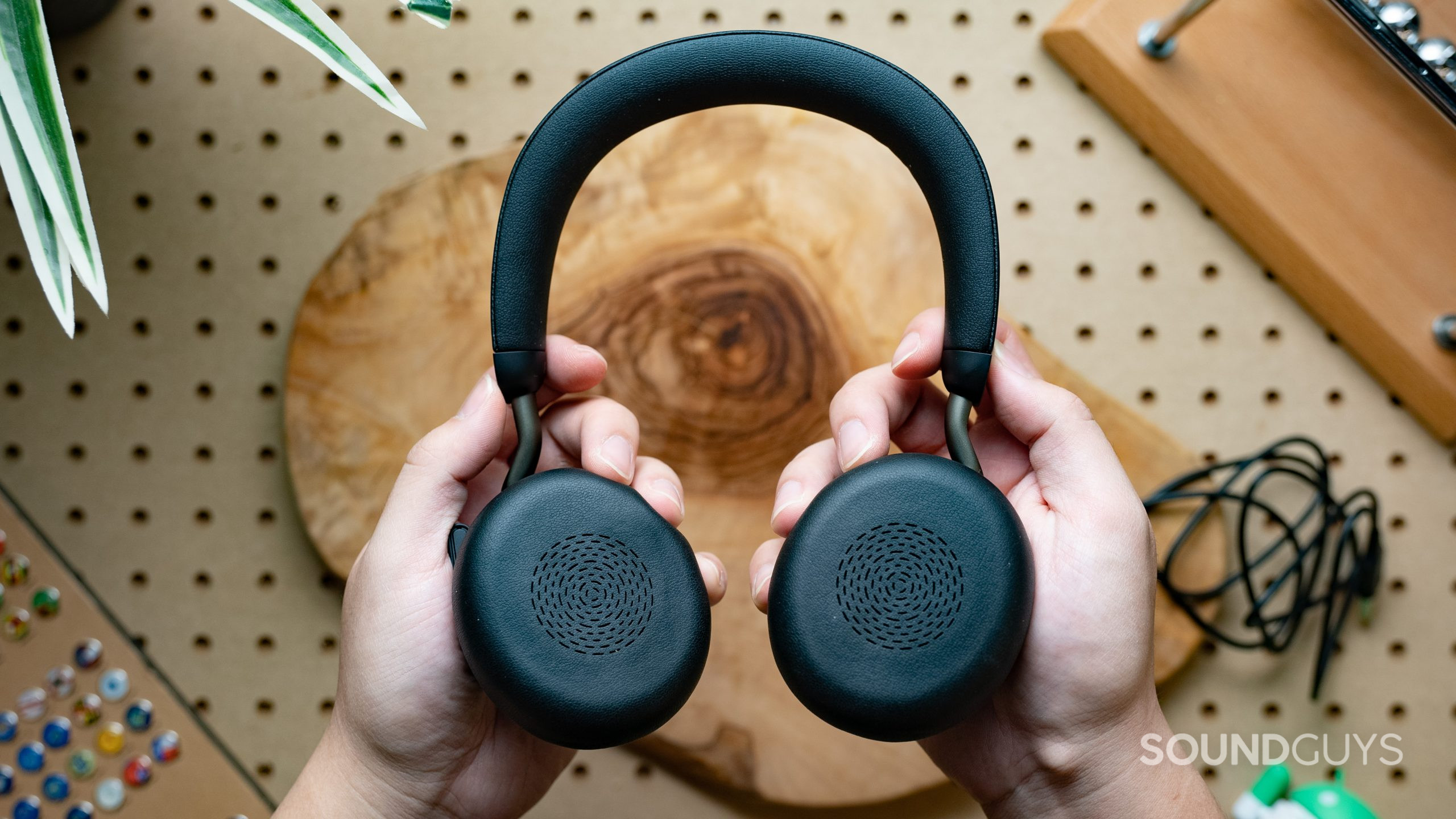
You can dive deeper if you’re really curious to learn the science behind active noise canceling, but if you don’t feel like dusting off your old textbook and want the TL;DR version, here it is.
Tiny microphones built into the headphones pick up what’s going on around you and then play the opposite sound wave into your ear along with your music. Because the sound wave produced by the headphones is basically the exact opposite of the one that’s outside of the headphones, it cancels out. Leaving you with just the sound of your blissful music. See? That wasn’t so bad. Science can be cool.
How do Bluetooth codecs work?
So you think you’re ready to understand what makes LDAC or aptX HD good? Get ready. We’re about to go over a ton of technical jargon and numbers, but we’ll try to keep it relatively short.
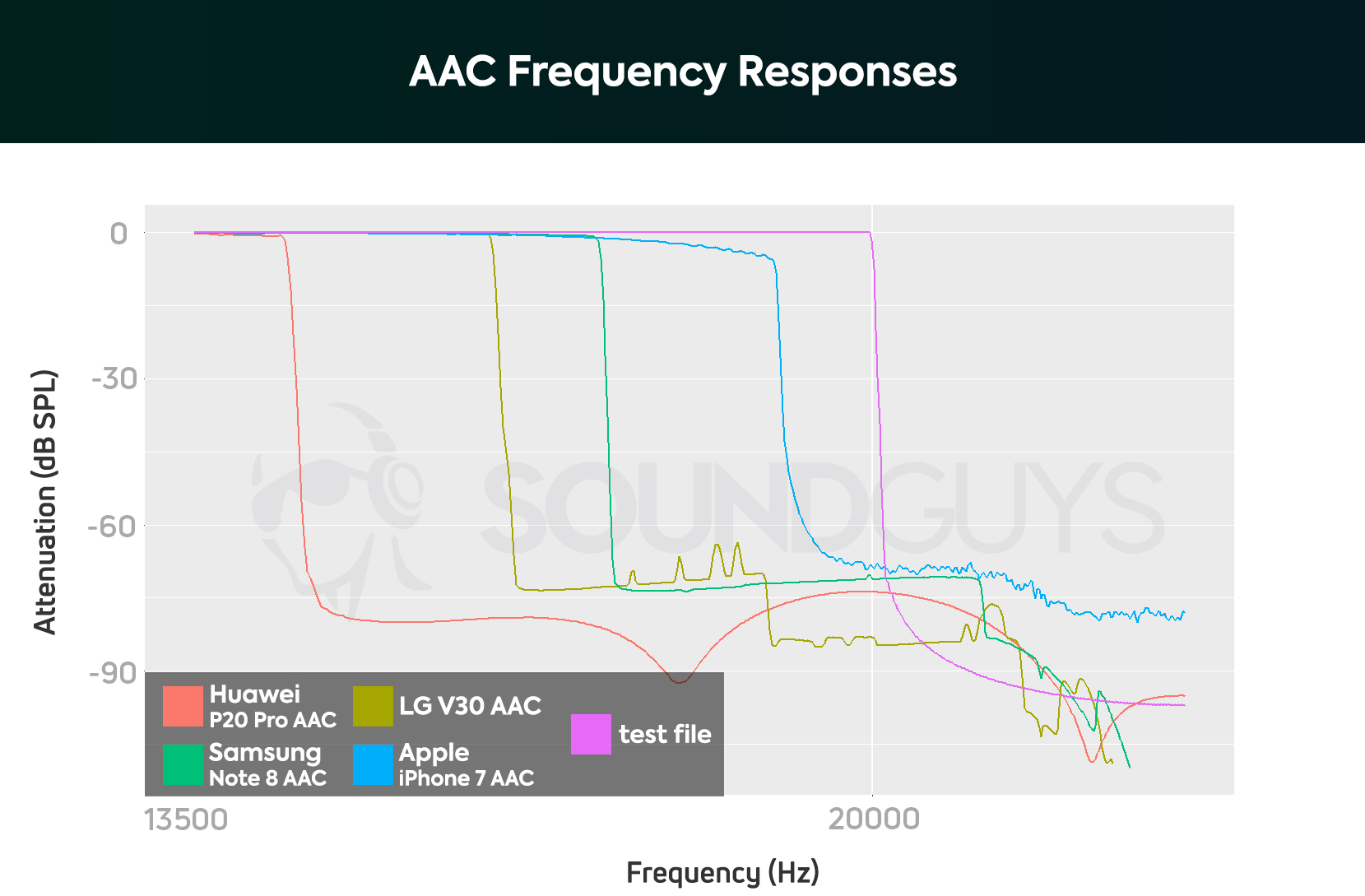
LDAC is supposed to be better because it can carry more audible information than the standard SBC codec, but our testing revealed that LDAC isn’t completely able to replace a wire. Luckily any performance issues are increasingly hard to hear as we age because, sorry to break it to you, but our ears aren’t that great when we’re old.
Even if your phone doesn’t currently support it, you should still get headphones that support these codecs anyway. Assuming your headphones last longer than your smartphone does, your headphones will only sound better as the tech in your phone catches up.
How we choose the best wireless headphones

Selecting the best products in any category requires a tailored approach. For wireless headphones, we prioritize several key factors to ensure our recommendations meet the highest standards of quality and user experience.
- Bluetooth connectivity: A strong, stable wireless connection is paramount. We rigorously test each headphone’s Bluetooth performance, considering factors like range, stability, and codec support.
- Sound quality: We evaluate each headphone’s sound profile, frequency response, and overall listening experience across various music genres and content types and how well it compares to our preference curve.
- Battery life: We conduct standardized battery tests and consider factors like quick charging capabilities.
- Comfort and design: Since wireless headphones are often used for extended periods, comfort is essential. We assess the build quality, weight distribution, and long-term wearability of each model.
- Features and usability: We examine additional features such as active noise cancelation, companion apps, touch controls, and multi-device pairing, evaluating how they enhance or hinder the overall user experience.
- Value for money: We consider the price-to-performance ratio, ensuring our recommendations offer good value across various budget ranges.
- Objective testing: Our team uses specialized software and measurement equipment to conduct objective tests on parameters like frequency response, isolation, and microphone quality.
- Real-world testing: In addition to lab tests, we use each headphone in various real-life scenarios to assess its practical performance and reliability.
By combining these criteria, we aim to provide a comprehensive and balanced view of the best wireless headphones available, catering to a wide range of user needs and preferences.
Why you should trust SoundGuys
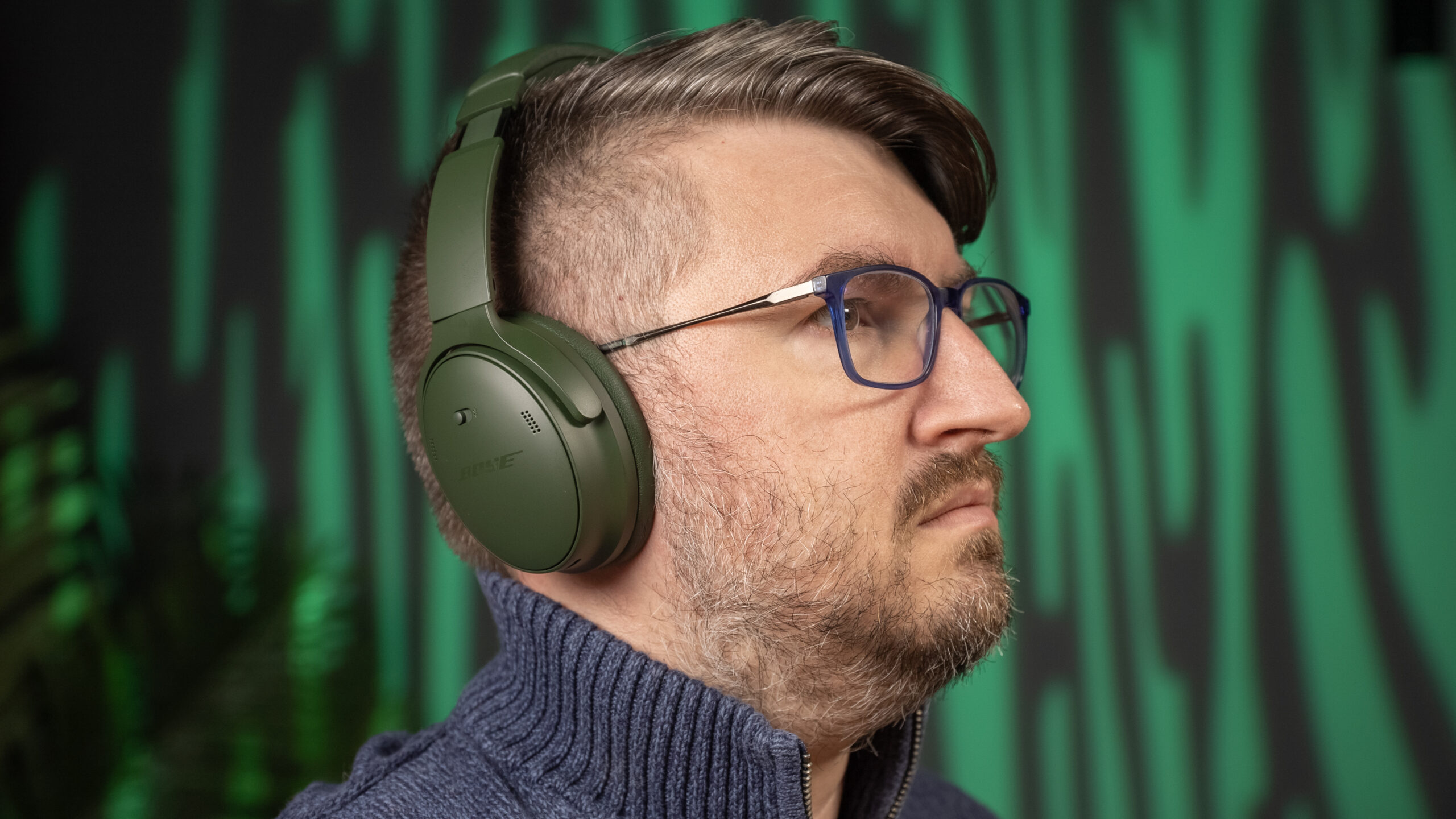
Our recommendations come from rigorous testing of over 200 headphone models in our lab. We put each pair through a series of standardized tests in controlled conditions to ensure our top picks are backed by objective data. Our process includes measuring frequency response, evaluating noise attenuation, and conducting battery life tests. We also use the MDAQS algorithm to generate sound quality scores from a virtual panel of listeners, providing an unbiased assessment of audio performance. For headphones with microphones, we test call quality in various simulated environments to ensure clear communication whether you’re in a quiet room or a bustling café.
Why do we go to such lengths? To cut through the marketing hype and provide you with reliable information to choose the best wireless headphones for your needs.
Each writer at SoundGuys has accumulated years of experience reporting on the consumer audio market, and our staff adheres to a strict ethics policy. SoundGuys’ survival depends almost exclusively on readers enjoying their purchases. We pride ourselves on transparently outlining objective facts while accounting for the subjective experience to contextualize an audio product’s performance. When we do misspeak, we correct and own up to it.
About the Author
Chase Bernath is the Managing Editor at SoundGuys, where he oversees content related to headphones, earbuds, speakers, and all things audio. As a founder of the non-profit organization Music For Mental Health, Chase is also passionate about uncovering the ways music creation and listening can serve individuals and the community. You can find music he produces by searching his name on Spotify, Apple Music, and all other streaming platforms. Chase studied Commerce and Applied Music Technology at the University of British Columbia in Vancouver, Canada.